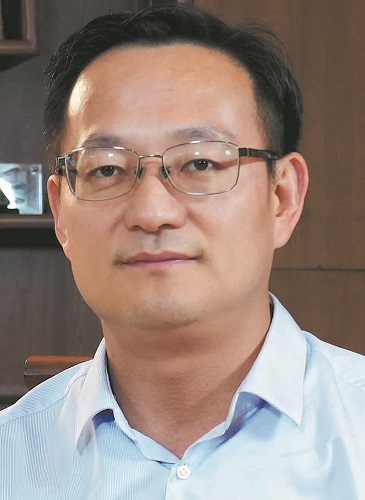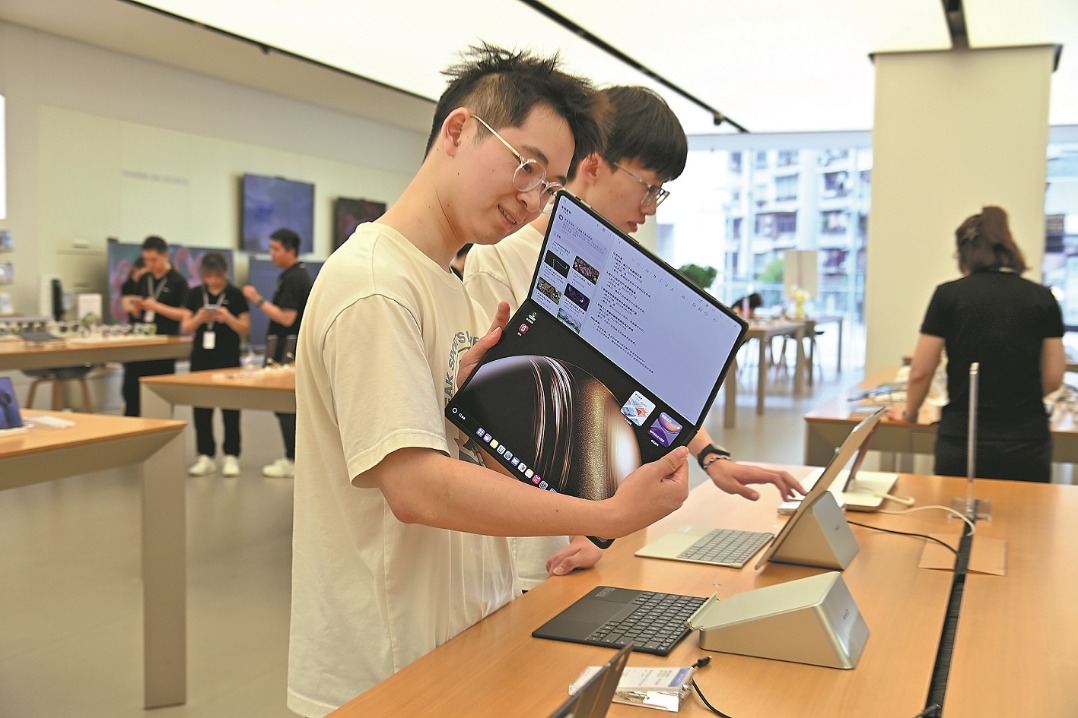Nation well-positioned to meet 2025 growth target


Underpinned by resilient domestic demand, emerging technological drivers, and a deepening commitment to institutional opening-up, China remains on track to achieving the around 5 percent growth target for this year, a renowned economist said.
"Looking ahead to the full year, I believe that China has the confidence and capacity to meet the around 5 percent annual growth target in 2025," said Chen Deqiu, vice-president of the University of International Business and Economics.
Despite facing challenges, the dual engines of consumption and investment will play a more prominent role in the short term, Chen said in an exclusive interview with China Daily recently.
He noted that China's ultra-large domestic market will continue to serve as an anchor of stability. Chen said government stimulus measures, such as trade-in deals for consumer goods, have lifted consumer confidence significantly.
China's retail sales grew 6.4 percent year-on-year in May compared with a 5.1 percent rise in April, the fastest pace since late 2023, according to the National Bureau of Statistics.
"Our internal market resilience is strengthening, and the potential of domestic demand is expanding," Chen said. "This is the ballast stone of our growth."
Meanwhile, China's high-tech enterprises are also demonstrating increased creativity, with accelerated growth in emerging areas such as integrated circuits and new energy vehicles, he said.
"In the medium term, new quality productive forces are entering a period of harvest," he said. "In the long run, institutional opening-up will further enhance China's global appeal for production factors, helping mitigate risks from decoupling by some Western countries."
Although Chen acknowledged mounting pressures, particularly due to external uncertainties amid the China-US trade dispute and economic structural issues at home, he remained optimistic.
"We have strong policy coordination, clear development direction, new growth drivers, innovation momentum and resilient domestic demand," he said. "I remain confident in China's economic prospects."
Chen also highlighted the strategic importance of the "Shopping in China" initiative, a government-backed campaign designed to boost consumption and enhance the nation's global appeal.
"The launch of this campaign is a strategic choice in response to domestic and international economic shifts," he said. "It promotes consumption upgrading and high-standard opening-up. At the same time, it is a tactical move to ease short-term external trade pressure and unleash consumption potential."
More broadly, "It is a path to elevate 'Made in China' to 'Brands of China', and to rebuild the global influence of China's consumer market. It also opens a new channel for exports of Chinese consumer goods," Chen said.
To further expand the campaign's impact, Chen proposed several measures, including expanding the coverage of the departure tax refund system and creating synergies between shopping and cultural tourism. It is also advisable for the government to build a precise database of foreign consumer preferences to help companies tailor products.
Looking ahead, Chen sees the external challenges amid China-US trade tensions as a catalyst for the country to accelerate innovation. "Our strategic response must focus on technological breakthroughs," he said. "We need to strengthen fundamental research and explore hybrid models of organized and curiosity driven science."
Chen also called for "nurturing an innovation ecosystem", with capital markets like the technology-focused STAR Market of the Shanghai Stock Exchange playing a vital role in scaling up hard tech firms, and deepening collaboration among academia, industry and research.
Liu Dian, a researcher at Fudan University's China Institute, echoed Chen's views.
China's policy tools need to be further refined and optimized to boost technological innovation, he said.
"Policy support should be more targeted, tailored to the characteristics of various industries and enterprises. For instance, high-tech manufacturing and strategic emerging industries should be offered preferential loan rates and longer-term financing," Liu said.
"Pressure is often the best catalyst for spurring innovation," Chen added. "China is fully capable of transforming from a follower to a global leader in this new era."




































